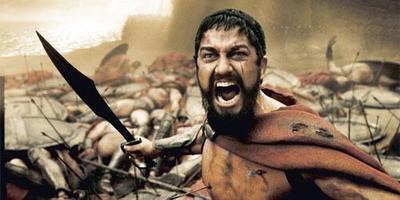PHNOM PENH, Cambodia (AP) — The top four surviving members of the Khmer Rouge regime blamed for the deaths of an estimated 1.7 million Cambodians in the 1970s appeared for a second day Tuesday before a U.N.-backed tribunal aimed at finally achieving justice.
Chief Judge Nil Nonn said the hearing would address objections from former Foreign Minister Ieng Sary's lawyers that the 85-year-old cannot be tried because he received a royal pardon in 1996 when he led a mass defection to the government.
With the aging leaders all in their late 70s or early 80s and with Khmer Rouge overlord Pol Pot long dead, the trial before the U.N.-backed panel represents the last, best chance for Cambodia to bring accountability to the Khmer Rouge leadership blamed for the deaths.
All four defendants say they are innocent.
"This is, at this time, the most important trial in the world," Stephen Rapp, U.S. envoy on war crimes issues, said Monday. "It's a message to others who might commit similar crimes that there will be consequences. That it may not happen tomorrow or the next day. But eventually, you'll be in the dock as well."
During their 1975-79 rule, the Khmer Rouge tried to implement a communist utopia, but ended up killing as many as one-quarter of their countrymen through executions, medical neglect, overwork and starvation.
In addition to Ieng Sary, the others on trial are Nuon Chea, 84, who was Pol Pot's No. 2 and the group's chief ideologist; Khieu Samphan, 79, the former head of state; and Ieng Thirith, 79, who served as minister for social affairs.
Nil Nonn opened the trial Monday with procedural matters, including reading out the charges against the four, which include crimes against humanity, war crimes, genocide, religious persecution, homicide and torture.
Cambodian victims' advocates have decried how long it has taken to launch the trial, saying the proceedings are needed to shed light on a dark period and that time is running out for drawing meaningful testimony from the defendants.
Although all four defendants were present for the start of the trial Monday, three were allowed to exercise the right to excuse themselves for reason of poor health, leaving only Khieu Samphan in the courtroom. On Tuesday, Nuon Chea left the courtroom again.
Theary Seng, a human rights advocate representing some victims who are allowed a role in the proceedings, said it was fair to excuse the defendants because of their infirmity, but that it would be a shame not to hear their statements.
"We cannot try ghosts," Theary Seng said. "As a victim, I desire truth and justice from the defendant which is best obtained when he or she is coherent and alert."
Testimony and presentation of evidence is expected to begin in August or September, 32 years after the Khmer Rouge were ousted from power in 1979 with the help of a Vietnamese invasion.
For more than a decade afterward, they waged a bloody insurgency against the Phnom Penh government. Pol Pot escaped justice with his death in 1998, then a prisoner of his own comrades as his once-mighty guerrilla movement was collapsing.
Michiel Pestman, representing Nuon Chea, said a full accounting of the historical context of the Khmer Rouge should include a probe of the massive wartime U.S. bombing of Cambodia and Vietnam's role.
The tribunal started operations in 2006. Its first defendant was Kaing Guek Eav, also known as Duch, commandant of Tuol Sleng prison, where only a handful of prisoners survived. Up to 16,000 people were tortured under Duch's command and later taken away to be killed.
Duch, now 68, was sentenced to 35 years in prison for war crimes and crimes against humanity. His sentence was reduced to 19 years because of time previously served and other technicalities, bringing angry criticism from victims who called the punishment too lenient. Cambodia has no death penalty.
(This version CORRECTS spelling of human rights advocate's name in paragraph 11 to Seng instead of Sang, lawyer's name in paragraph 15 to Michiel instead of Michel)




No comments:
Post a Comment